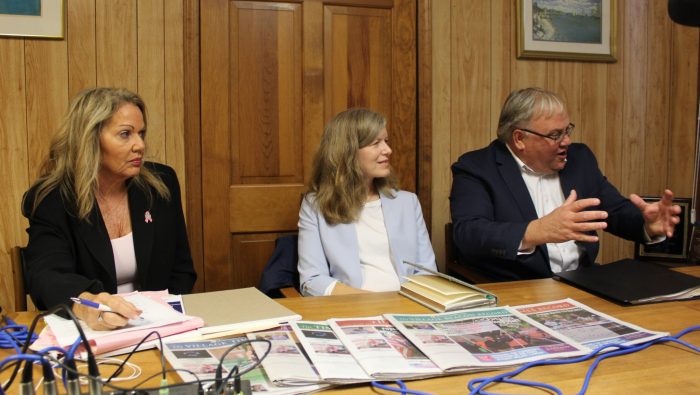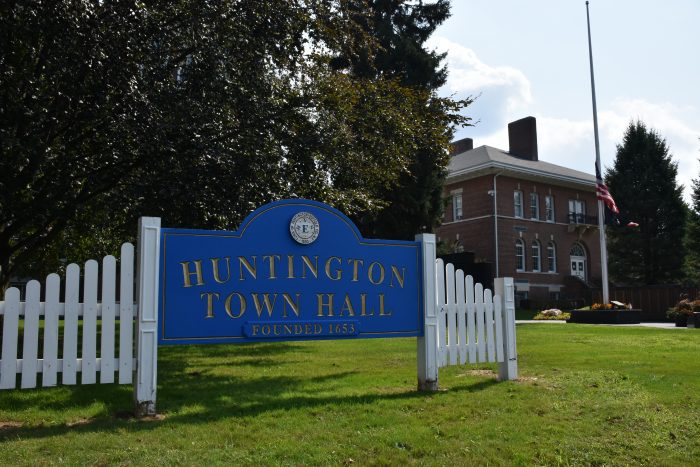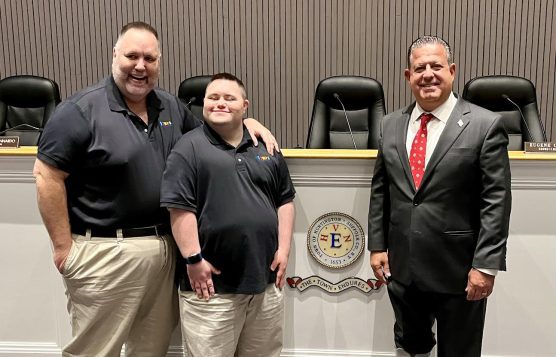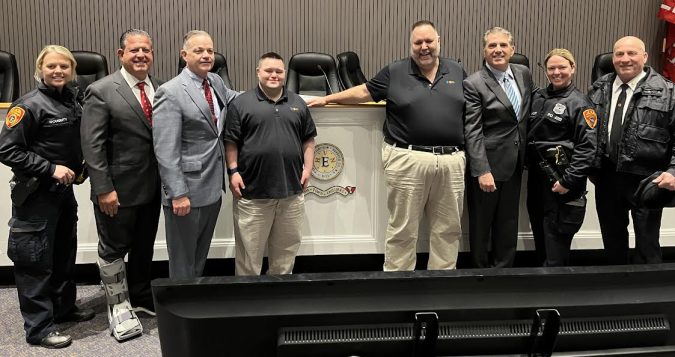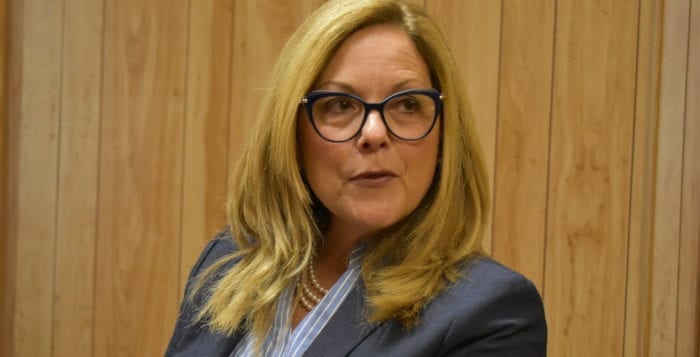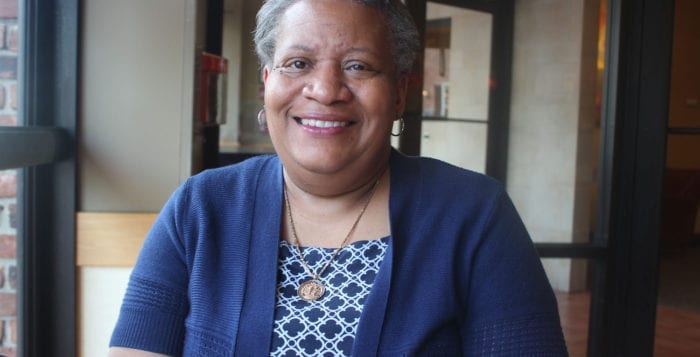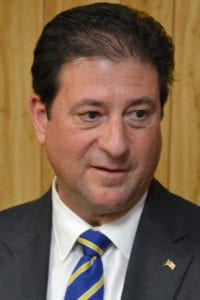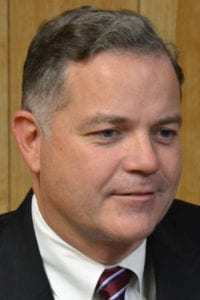By Nasrin Zahed
Huntington Town Board candidates Jen Hebert (D), Theresa Mari (R) and Don McKay (D) came together in a recent TBR News Media interview held Friday, Oct. 20, to share their thoughts on issues facing their community and their strategies to address them. Brooke Lupinacci (R) did not attend. There are two open seats on the board.
Finances
Huntington’s town budget concerns revolve around multiple factors, including a decrease in revenue from sources like mortgage tax receipts. With economic uncertainties placing pressure on finances, the candidates acknowledged the need for a comprehensive budget strategy.
McKay highlighted the significant unallocated fund balance, suggesting a prudent approach for addressing projects such as public amenities. “The budget could be managed by tapping into the town’s unallocated fund balance, which currently stands at $27 million,” he indicated. “We need to use these reserves wisely to address shortfalls in the budget, particularly for projects like maintaining local sports fields.”
Hebert also stressed the need for better budgetary management. “I really am looking to be a good steward of taxpayer money,” she said, adding that the town should be working to have a more open-ended discussion regarding budget related issues and spending, and looking at ways to put funds back into the community’s small business scene. “Small businesses are a vital part of our local economy,” she said.
Mari added to this discussion, advocating for a resident-centric budget plan and limiting overspending wherever necessary.
“I think it’s a matter of ensuring we are not overspending — cutting where we can and making sure we all work together to try and make sure that everybody’s open and transparent, and that the budget is good for our community,” Mari said. “The top priority always has to be what benefits the Town of Huntington and its residents.”
Land use
One issue that resonated with all the candidates was overdevelopment, each stressing the importance of ensuring that development aligns with the character of the existing community.
Each candidate emphasized the need for transparency and community involvement in the decision-making process regarding development projects. Balancing growth and preserving the town’s unique identity emerged as a common goal.
All candidates agreed that balancing the budget and managing taxes is a crucial task for the Town Board. They shared a commitment to keeping taxes at bay, especially during challenging financial times.
Hebert emphasized the importance of responsible budgeting and partnering with developers in order to provide new and affordable housing options to the area.
With concerns about community youths not having the opportunity to grow and afford to live on Long Island, she added, “We should transform empty commercial spaces into attractive, affordable housing options. This approach provides homes for a diverse range of residents and improves the town’s financial health by generating revenue from otherwise vacant properties.”
Mari noted the importance of maintaining the town’s charm and collective visual appeal. “The fact is, any building should fit in the character of the community. At one point, Classic Galleries was looking at putting up six apartments, and that just doesn’t work in our village,” she said. Sharing her commitment to keeping gaudy development projects out of Huntington’s view, she stated, “I will look at each project very closely, and each project will get evaluated on its own merits.”
McKay stressed the consequences of projects such as the Indian Hills Golf Course in Northport that are underway. “This project was an absolute disaster,” he said. “They had environmental reviews by scientists saying that you can’t do X, Y and Z. They ignored all the studies … and they’re actually being built as we speak.”
He continued by pointing to perceived faults during the site plan approval process, arguing that the town’s municipal boards largely excluded residents from the decision-making process.
“They’re advocating on behalf of developers, not advocating on behalf of the residents of town,” he said.
Quality of life
The candidates also shared their perspectives on improving the quality of life in Huntington. Each candidate expressed a common and urgent need to give the Town of Huntington their best foot forward.
Hebert expressed her commitment to enhancing community services for youth, saying, “We need to get the kids early, [but] we don’t offer them enough programs and options. They’re going home to empty houses, they’ve got social media, they need to have more options.”
She pointed out that students need opportunities that allow them to grow in the safety of their local area so that when it is time for them to be on their own, they are ready.
Mari gave an overview of Huntington’s broader quality of life needs: “Making sure that we are representing our community, holding the line on taxes, making sure that our community feels safe, that they don’t feel overburdened, that they feel like they can drink their water, they can go to their beaches, they can go to their parks, and they can live in Huntington [and] keep it their home.”
McKay pressed on the importance of being a board member for the people. A “Town Board member needs to be responsive,” he said. “To improve the quality of life for the residents of Huntington, there need to be public figures working to get projects done that revitalize and work toward a greater collective township.”
Local revitalization
Huntington Station, the candidates acknowledged, faces a set of complex local challenges. Crime rates, particularly property crimes, have been a cause for concern, requiring focused law enforcement efforts and community engagement. Additionally, infrastructure improvements and revitalization efforts are needed to address aging buildings and public spaces.
The candidates expressed their commitment to revitalizing and improving this area of the town.
Hebert urged the unique claim that Huntington Station is the immediate reflection of what the Town of Huntington can do. “That is the gateway to Huntington as you come down [Route] 110,” she said. “We want people as they drive through Huntington Station to look around and think to themselves what a beautiful neighborhood this is.”
By renewing aging spaces and breathing new life into them, Huntington Station has the opportunity to become a thriving district of growth that leads into an already prosperous and attractive town. “We do need to try to give that community the things they not only want, but that they need,” Hebert added.
Mari put great emphasis on the safety concerns related to the area, as residents have come forward with small measures they feel would make their neighborhoods more comfortable. “People say to me that it is as simple as they need more lights in their neighborhoods because of the concern of safety,” she said. “Revitalizing Huntington Station is to make sure that we have enough police to make sure that the area is safe.”
McKay underlined that, financially, the town is in a prosperous position to be able to invest back into that area of the community. “The good news is we got money from the state and so there is money available — that’s the positive thing right now,” he said, adding that there are too many ideas to start solidly and that the community must come together in deciding what route to take. “But the golden question is, how do you use it? What are the next steps in revitalizing an area such as Huntington Station?”
Residents will have the final say on these Town Board candidates. Election Day is Tuesday, Nov. 7.

